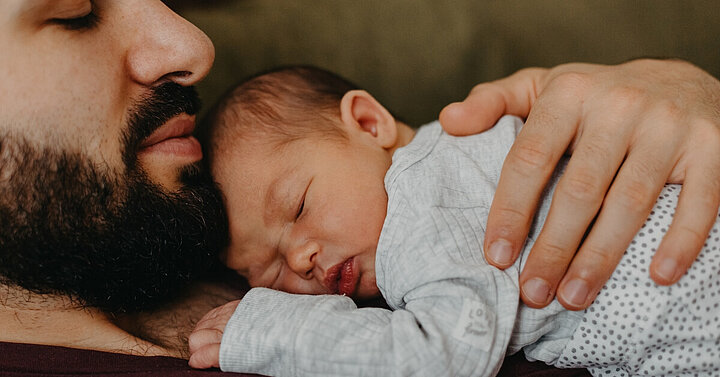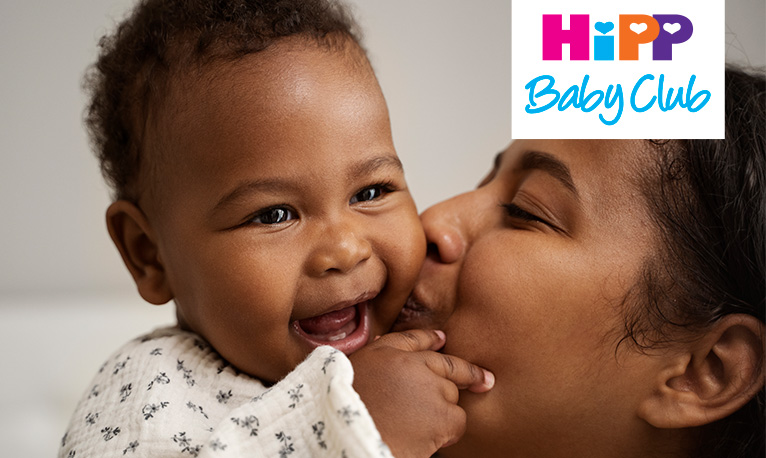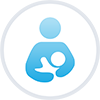How much sleep do babies need?
Newborn | | HiPP Organic
As a parent, you know that getting enough sleep is crucial for your little one’s development and growth. But how much sleep is necessary exactly? And what are the best practices when it comes to establishing healthy sleeping routines and ensuring your baby's safety during naptime? In this article, we’ll answer all these questions and more. So, get ready to learn everything you need to know about helping your little bundle of joy get the rest they need - safely.
Baby sleep schedules and routines
Babies need a lot of sleep! In their first few months, they will sleep up to 16 hours a day - although it may not feel like as they don't always sleep for extended periods of time. As they get older, they will sleep less during the day and more at night. By 6 months old, most babies will be sleeping for around 12 -14 hours a day. But all babies are different and do have varying sleep needs.
Some sleep experts say it's important to establish a bedtime routine with your baby from an early age. Yet if you're breastfeeding the first 6 – 8 weeks are all focused on that and routine does tend to go out the window. Routine is important for babies, once feeding is established, as it will help them to understand that it is time to sleep when they are put in their cot or bed. A typical routine might involve some quiet time reading or singing/swaying together, entering into a darker room and then into bed with a lullaby or gentle stroking.
You can find more detailed information on this topic from our Sleep Expert, Laura!
Sleep safety for babies
Most parents are aware that newborns need a lot of sleep, but they may not be aware of the importance of sleep safety for babies. There are many dangers that can befall a sleeping baby, so it's important to take steps to ensure their safety.
One of the most important things you can do is create a safe sleep environment for your baby. This means using a firm mattress in a crib or bassinet that meets current safety standards. The mattress should be waterproof and covered with a fitted sheet. There should be no pillows, toys, or other loose items in the crib. The baby should also be placed on their back to sleep, as this position reduces the risk of Sudden Infant Death Syndrome (SIDS).
It's also important to keep the room where your baby sleeps free from any potential hazards. Make sure there are no cords or dangly objects near the crib, and keep the room temperature comfortable at around 16– 20˚C to prevent your baby from getting too hot or cold.
Safe co-sleeping
It's perfectly natural for parents to want to keep their baby close by during the night. And while there are a lot of different opinions on the best way to do this, the bottom line is that you should do what feels right for you and your family.
If you decide to co-sleep, there are some safety precautions you should take. First, make sure that your bed is firm and that there are no pillows or blankets near your baby's face. You should also avoid using any type of sleep positioner, as they can be dangerous.
Additionally, it's important to keep your baby safe from gaps in between the mattress and the wall or headboard.
Most importantly, always ensure you plan to co-sleep safely if you think you may fall asleep with your baby in the bed with you - whilst feeding for example. It's always best to plan for it rather than accidentally fall asleep in an unsafe position.
How to settle your baby
There are a few things you can do to help settle your baby and encourage them to sleep. Try rocking your baby gently in your arms, sling or using a bouncer seat. You can also try white noise to soothe your baby and help them fall asleep. Swaddling your baby in a blanket can also help them feel secure and comfortable. Ensure you follow safety instructions around how to do this. Make sure the environment in your home is conducive to sleep by keeping it nice and dark and quiet.
Establishing a regular bedtime routine will cue your baby’s brain that it is time to sleep as their circadian rhythm develops. Try not to let your baby become overtired. An overtired baby will have difficulty settling and may become cranky. Watch for early signs of fatigue such as rubbing eyes or becoming fussy and put your baby down for a nap or night-time sleep before they reach this point.
It’s essential to create a safe sleeping environment and a regular sleep routine for your baby that meets their needs. Babies need different amounts of sleep depending on age – newborns more than toddlers, for example. Remember to not suddenly reduce the time they nap during the day or stay up later at night when starting any new sleeping schedule as this can be disruptive to their sleep rhythms and body clock.


